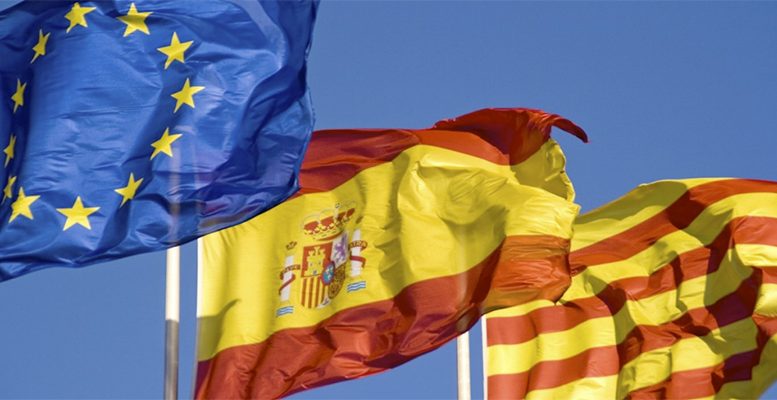A British newspaper asked this question this morning and it’s very pertinent. What has been happening in Catalonia recently puts Spain, a member of the EU, at risk of failure. Essentially what has taken place in Catalonia is the violation of the constitutional order and the rule of law. That said, what the media is highlighting is the action taken by the police on Sunday, who tried to comply with the dictates of a court order. But they didn’t manage it. It was too much for the Spanish police, who were despised and defeated, while the local and regional police limited themselves to just letting things happen. The mobilisation of the populus was aimed at supporting a simulation of a referendum without any guarantee which violates the democratic principals of the European Union. This is the central theme of which people are not sufficiently aware. Behind the independence movement there is anti-European populism, ethnic supremacy and revolutionary ambitions.
Spain’s rule of law has been battered by the Catalan independence movement which has used unlawful conduct to obtain its goals, without respect for the constitution. To claim that Europe will be amazed by their exploit, when it violates the very structure of Europe is, at the very least, daring.
The constitutional agreement of 1978 is on the point of breaking down. And it’s strange that it’s the rightwing who have the greatest loyalty to this Constitution. They accepted it with reservations, in comparison with the hesitant socialists, who were father or mother of this Constitution. Even the communists and the Catalan nationalists supported it totally, although it’s clearer every day that the latter did it for tactical reasons with reservations (patience for now and later independence, they said softly) so they could be disloyal when the time was right; but that’s nothing new in historical terms either, it happened before.
Loneliness, and the incompetence of Rajoy and the PP, leave the Constitution without a sail, and, as a result, threaten Spaniards with collective rupture and failure. The institutions, the courts, the police and even the army, are facing eviction because they have lost their power and capacity.
The social mobilisation of the Catalans brings together a series of interests, ranging from a revolution against the system to the most archaic national populism. A mixture of the traditional right and the revolutionary left which has very little in the way of precedents. To understand it, you have to dig deep into Spain’s history and look at its old ghosts, from Carlism to anarchy. You need to reread Orwell who experienced first hand what drives the Catalans and Azaña, the president of the failed II Spanish Republic. In the last documents he wrote, he denounced the internal betrayals of the Republic as being decisive for Franco’s victory. As well as the disinterest and abandonment of Spain’s non-totalitarian European neighbours.
The 1978 constitution buried those ghosts, just like the German Constitution of 1949 paved the way for a new era of constitutional patriotism, liberty, solidarity and democracy. In Spain, this patriotism has been badly wounded.





